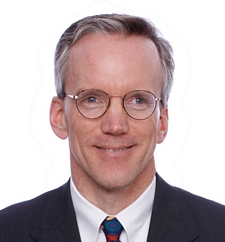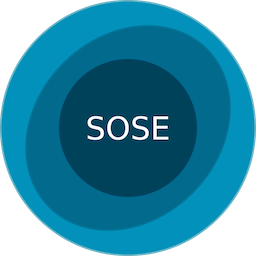Keynotes
The conference will feature a number of exciting plenary keynote presentations:
- Mark W. Maier: Systems-of-Systems and the Spectrum of System Classes.
- Duncan Kemp: Systems of Systems Engineering, a 30 year retrospective.
- George Kamiya: Digitalization and Climate Change.
- Nicole Kringos: From Via Appia to the Smart Road: How transportation infrastructure has become a system-of-systems
- Kim Wikström: System Innovation – Visualizing Ecosystems to Enforce Transformation
Mark W. Maier: Systems-of-Systems and the Spectrum of System Classes
Abstract: When the concept of a system-of-systems as a collaborative group was formed circa 1997 the core idea was identifying a class of systems that share distinctive development practices. If there is one such class, there are presumably others. Classes might be disjoint or might overlap. Returning to the question of classes of system, defined by shared best practices for deployment, provides some perspective on how system-of-systems engineering has developed while also illuminating progress in the last two decades. If a system-of-systems is class defined by collaborative assemblage, operation, and management, some other adjacent classes are:
- Families-of-systems, or product-lines, defined by joint design and manufacture (but not joint operation) to simultaneously achieve economies of scale and user customization.
- Portfolios-of-systems, defined by joint management (especially budget) but not joint operation or development to achieve diversification benefits in risk or opportunity.
The talk will explore overlapping class boundaries and how related development and operation practices may also be overlapping or distinct. Forming objective functions for different classes versus levels of system will be explored. This will be brought together by examples of how real problems in large scale systems may be characterized against multiple classes and how this has affected the course of development.

Speaker: Dr. Mark W. Maier is a Technical Fellow at The Aerospace Corporation, and an author and practitioner of systems architecting (the art and science of creating complex systems). He is co-author, with Dr. Eberhardt Rechtin, of The Art of Systems Architecting, Third Edition, CRC Press, the mostly widely used textbook on systems architecting, as well more than 50 papers on systems engineering, architecting, and sensor analysis. Since 1998 he has been employed by The Aerospace Corporation, a non-profit corporation that operates a Federally Funded Research and Development Center with oversight responsibility for the U.S. National Security Space Program, where he holds the position of Technical Fellow, the highest technical rank in the company. At Aerospace he founded the systems architecting training program (an internal and external training program) and applies architecting methods to government and commercial clients, particularly in portfolios-of-systems and research and development problems. He received the BS and MS degrees from the California Institute of Technology and the Engineer and PhD degrees in Electrical Engineering from the University of Southern California. While at USC, he held a Hughes Aircraft Company Doctoral Fellowship, where he was also employed as a section head. Prior to coming to The Aerospace Corporation, he was an Associate Professor of Electrical and Computer Engineering at the University of Alabama at Huntsville.
Duncan Kemp: Systems of Systems Engineering, a 30 year retrospective
Abstract: Duncan will give a retrospective on the challenges he has faced in developing Systems of Systems over the last thirty years. He will discuss the real-world challenges to developing affordable, safe and effective systems of systems across multiple sectors.
He will discuss his real world experience of:
- Synchronising different system development lifecycles and managing the transition of systems in to, and out of, live systems of systems
- Performance assurance of critical emergent properties of systems of systems
- Managing the safety of complex systems of systems
- Improving collaboration between the owners and operators of systems within a system of systems
- Leading development through influence rather than control
- Shifting the focus of architecture from optimising performance to optimising openness, agility and collaboration.
Finally he will talk about the critical role of setting the right culture to ensure effective development, sustainment and continuous improvement.

Speaker: Professor Duncan Kemp is the Senior Fellow for Systems Engineering in Defence Equipment and Support (DE&S) within the UK Ministry of Defence. He is both the discipline lead for Systems Engineering and the team leader of the DE&S internal SE consultancy, which he has grown from scratch to a team of 40 systems engineers over the last four years.
Duncan has over thirty-years’ experience of developing safe and effective systems of systems, in: air defence, submarine combat systems, strategic command and control systems, operational and business information services, railways and land systems. Previous roles have included Chief Systems Engineer for rail in the UK Department for Transport, Chief Architect for MODs Command, Control, Computing and Communication systems and MOD acquisition reform team leader.
Duncan is a chartered engineer, Fellow of the Institution of Engineering and Technology and INCOSE Fellow. He was one of the authors of the SE Vision 2025, the lead author for the INCOSE UK Capability SE Guide and an author of the INCOSE UK Agile SE guide. He has presented over 20 peer reviewed papers (4 best papers) at INCOSE international symposia and INCOSE UK conferences. Duncan has held a range of formal positions within INCOSE and is currently the co-chair of the INCOSE System Safety Working Group.
Duncan is the Visiting Professor for Systems Thinking at the Wolfson School of Mechanical, Electrical, and Manufacturing Engineering at Loughborough University.
George Kamiya: Digitalization and climate change
Abstract: George will discuss the potential implications of digitalization on energy systems, climate change, and sustainability. He will highlight the opportunities for digital technologies to accelerate clean energy transitions, but also the challenges that arise from the complex interplay between energy and digital technologies and systems, innovation needs, and climate and energy policies.

George Kamiya is an emerging technologies analyst at the International Energy Agency (IEA) in Paris, where he coordinates the agency’s work on digitalisation and tracking clean energy progress, and leads the agency’s analysis on ICT energy use and new mobility. He was a lead author of the 2017 Digitalization & Energy report and has contributed to the agency’s work on climate change mitigation and adaptation, cybersecurity, and critical minerals.
Nicole Kringos: From Via Appia to the Smart Road: How transportation infrastructure has become a system-of-systems
A paradigm shift is occurring in the role that physical infrastructure has within our built society. Where an unexpected structural failure of a traditional road would mostly affect the road users in a reduced quality and speed of their mobility, failing of a smart road has larger systemic consequences. A smart road also means namely an increase in functions and services that are provided or depend on the road. Payment services, information handling, road access control, road investments, technology procurement, legal responsibilities, maintenance models and modal versus systemic handling of the road all are an integrated part of the smart road. To be able to move forward successfully toward a transportation infrastructure system that supports a sustainable development of society, we need to manage this change process. Nicole will take you on a journey from one of the most traditional engineering disciplines to one of the most complex and discuss the largest bears on the road ahead.

Speaker: Nicole (Niki) Kringos is Professor in Highway Engineering at KTH Royal Institute of Technology and Director of the KTH Road2Science Center. With a background in structural mechanics, for many years Niki’s research focus has been on developing computational and multi-scale models to enable long term performance predictions of asphaltic roads. Through her work with the Road2Science Center, from 2012 her research has started developing views on how to address the complexity of innovation in the transportation infrastructure sector for sustainable integration of technical advances. Niki has received many research grants over the years, e.g on Self Healing of Asphalt from the Swedish and Dutch National Research Councils, on Cyber-Physical Models for Cargo Ports from the Swedish Energy Agency, on the development of the Strategic Innovation Program InfraSweden2030 and the Campus2030 virtual twin project from Sweden’s Innovation Agency.
Kim Wikström: System Innovation – Visualizing Ecosystems to Enforce Transformation
Due to increased integration of physical, digital and behavioral activities in various systems there is a need to change the way we innovate, plan and implement future systems. Systems innovation is based on multiorganizational efforts including cross-disciplinary knowledge. In our research we have developed concepts for innovation of systems based on industrial ecology strengthening the sustainability goals and visualizing the ecosystems that the innovation concerns and involves. The logic is based on a primary focus on the value that the system innovation is expected to deliver, which are the activities included, dependencies, lock-ins hindering the implementation of the innovation, and roles and responsibilities among the included organizations. This concept has been utilized in renewal of the seaborne logistics, development of drugs within EU and in creating and developing innovation ecosystem platforms for system innovation.

Speaker:
Kim Wikström is professor (chair) in Industrial Management, with a specific focus on project business and industrial marketing at the Faculty of Science and Engineering, Åbo Akademi University. Before returning to academia 1992, he worked in engineering and construction companies responsible for developing and implementing project management and governance processes in large energy and marine projects. He has been visiting professor at Stanford University, USA, St. Petersburg State University, Russia and Tallinn Technical University, Estonia and visiting scholar at Norwegian University of Technology, Norway and Linköping University, Sweden. His and his research groups areas of research and expertise are: 1) value creation and industrial logic and business models (strategies, offering, modularization, integration mechanisms and services) in industrial investments and project-based firms and 2) organizational design (capabilities / competencies, risk and uncertainty, organizational structures) in large projects. His present focus is on boundary-spanning business models including collaboration mechanisms in business eco-systems within energy and transportation.
He is the founder of the Foundation for Project Research and PBI Research institute (university based spin-off). He is chairman for the Board of Supervisors in Veritas Ltd and vice-chairman for the delegation in Aktia Ltd. He is board member in STV (Swedish Technical Academy of Science) and the steering committee for the newly formed network university FITech. He is board member in Åbo Akademi University.
